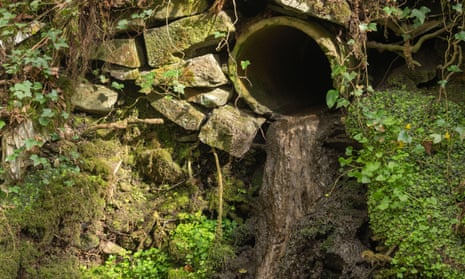The Conservatives have pushed through a duty on the water regulator to prioritise growth, which experts have said will incentivise water companies to value their bottom lines over reducing sewage pollution.
Campaigners fear this move will weaken Ofwat’s ability to crack down on water companies as it may force the regulator to consider a company’s financial situation and the impact on its growth if the firm is heavily fined for polluting.
The Liberal Democrats forced a vote in parliament on Wednesday on the government’s new “growth duty” for Ofwat, which requires the regulator to “have regard to the desirability of promoting economic growth” when cracking down on water companies. They lost, as 50 MPs voted against the statutory instrument and 395 voted in favour.
The growth duty specifically mentions fines of companies as a measure that could hamper their growth. It says: “Certain enforcement actions, and other activities of the regulator, can be particularly damaging to growth.
“These include, for example, enforcement actions that limit or prevent a business from operating; financial sanctions; and publicity, in relation to a compliance failure, that harms public confidence.”
Last year water companies were ordered to cut more than £100m from customers’ bills after repeated failures to stop sewage pollution.
Campaigners fear the growth duty could cause the regulator to be less stringent with penalties because it would have to consider the commercial impact of fines on a company.
The financing of some water companies is already in a precarious state; Thames Water is currently at risk of collapse.
Richard Benwell, CEO of Wildlife and Countryside Link, said: “The growth duty once again privileges business bottom lines over nature. Public demand and environmental need are totally clear – Ofwat should be promoting investment in nature and ensuring polluters pay.
“A new duty that obliges the regulator to think twice before taking environmental action is headed entirely in the wrong direction. Parliamentarians are right to oppose this backward step.
“The real economically responsible action is to protect the natural assets we depend on. Political parties should commit instead to a new green duty on regulators to ensure they take action to stop climate change and restore nature.”
Labour MPs voted with the government, and it is understood this is because they did not want to be accused of being “anti-growth”.
after newsletter promotion
The Liberal Democrat environment spokesperson, Tim Farron MP, said: “Conservative MPs have just voted to help water firms get off the hook. Ofwat will now be fighting water companies with one hand tied behind their back.
“This government is all talk and no action when it comes to the sewage crisis. Time and time again Conservative MPs have voted against taking tough action on polluting firms.
“It is a scandalous vote by a government which is woefully out of touch with this environmental crisis. The public will be furious to hear the industry’s enforcer has been weakened even more. Conservative MPs should hang their heads in shame.”
A government spokesperson said: “Ofwat continues to have very clear environmental responsibilities to ensure water companies comply with existing protections, and the growth duty will not change that.
“This extension allows Ofwat to more effectively deliver economic growth alongside its regular duties and does not in any way restrict how regulators enforce the industry.”










